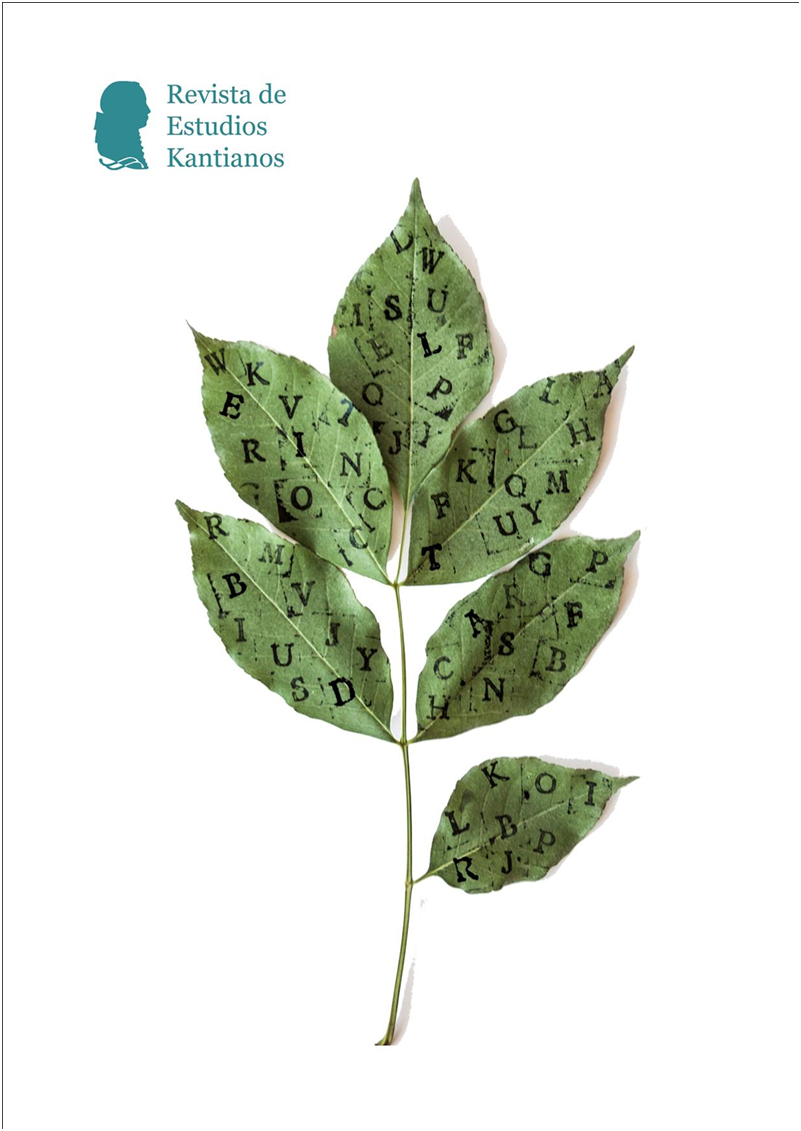Can Kant tell us what to do? Intentions, dilemmas, and the long journey towards moral perfection
DOI:
https://doi.org/10.7203/REK.8.1.23010Keywords:
ethics, dilemmas, prima facie duties, perfect and imperfect duties Abstract
Abstract
The “received view” on Kantian ethics holds that perfect duties enjoy absolute priority over imperfect duties. More recently, several Kantian scholars have reassessed this situation, arguing that imperfect duties may remain binding even if they imply breaching a perfect duty. In this article, I argue that both positions rely on a misunderstanding of the bindingness of Kantian duties. Genuine Kantian duties, I claim, remain binding even when they cannot be fulfilled. We must always strive for a total completion of our duties; what it means for us to strive for it, however, will vary depending on our peculiar situation.
 Downloads
Downloads
 References
References
Akhlaghi, F. (2020). On Moral Obligations and Our Chances of Fulfilling Them. Ethical Theory and Moral Practice, 23, 625-638.
Cholbi, M. (2009). The Murderer at the Door: What Kant Should Have Said. Philosophy and Phenomenological Research, 79(1), 17-46.
Cummiskey, D. (1990). Kantian Consequentialism. Ethics, 100(3), 586-615.
Dietrichson, P. (1968). What Does Kant Mean by ‘Acting from Duty’? In R. P. Wolff (Ed.), Kant. A collection of critical essays (pp. 314-331). Macmillan and Co.
Donagan, A. (1987). Consistency in Rationalist Moral Systems. In C. W. Gowans (Ed.), Moral Dilemmas (pp. 271-291). OUP.
Esser, A. (2008). Kant on Solving Moral Conflicts. In M. Betzler (Ed.), Kant’s Ethics of Virtue (pp. 279-302). de Gruyter.
Foot, P. (1967). The Problem of Abortion and the Doctrine of the Double Effect. Oxford Review, 5, 5-15.
Gregor, M. J. (1962). Laws of Freedom. A Study of Kant’s Method of Applying the Categorical Imperative in the Metaphysik der Sitten. Barnes & Noble.
Harrison, J. (1968). Kant’s Examples of the First Formulation of the Categorical Imperative. In R. P. Wolff (Ed.), Kant. A collection of critical essays (pp. 228-246). Macmillan and Co.
Kleingeld, P. (2018). A Contradiction of the Right Kind: Convenience Killing and Kant’s Formula of Universal Law. The Philosophical Quarterly, 274(69), 64-81.
Kleingeld, P. (2020). A Kantian solution to the Trolley Problem. Oxford Studies in Normative Ethics, 10(2020), 204-228.
Korsgaard, C. (1996a). The Sources of Normativity. CUP.
Korsgaard, C. (1996b). Creating the kingdom of ends. CUP.
Marcus, R. B. (1987). Moral Dilemmas and Consistency. In C. Gowans (Ed.), Moral Dilemmas (pp. 188-205). OUP.
Meerbote, R. (1984). Commentary: Kant on Freedom and the Rational and Morally Good Will. In A. W. Wood (Ed.), Self and Nature in Kant’s Philosophy (pp. 57-73). Cornell University Press.
Ross, D. (1987). Prima Facie Duties. In C. Gowans (Ed.), Moral Dilemmas (pp. 83-101). OUP.
Thomson, J. J. (1985). The Trolley Problem. The Yale Law Journal, 94, 1395-1415.
Thomson, J. J. (2008). Turning the trolley. Philosophy & Public Affairs, 36(4), 359-374.
Timmermann, J. (2013). Kantian Dilemmas? Moral Conflict in Kant’s Ethical Theory. Archiv für Geschichte der Philosophie, 95(1), 36-64.
Von Wright, G. H. (1963). Norm and Action. A Logical Enquiry. Routledge & Kegan Paul.
Wood, A. W. (1999). Kant’s Ethical Thought. CUP.
Wood, A. W. (2017). Formulas of the Moral Law. Cambridge Elements.
Downloads
Published
How to Cite
-
Abstract397
-
PDF (Español)140
-
EPUB (Español)75
Issue
Section
License
![]()
The authors who publish in this journal agree with the following terms:
- The authors retain their copyright and guarantee to the journal the right to be the first to publish the work and to license it under a Creative Commons Attribution License that allows others to share the work with an acknowledgement of its authorship and the initial publication in this journal.
- Authors may separately establish additional agreements for non-exclusive distribution of the version of the work published in the journal (for example, placing it in an institutional repository or publishing it in a book), with acknowledgement of its initial publication in this journal.
- Authors are allowed and encouraged to disseminate their work electronically (e.g., in institutional repositories or on their own website) before and during the submission process, as this can lead to productive exchanges as well as earlier and greater citation of published work (see The Effect of Open Access).








